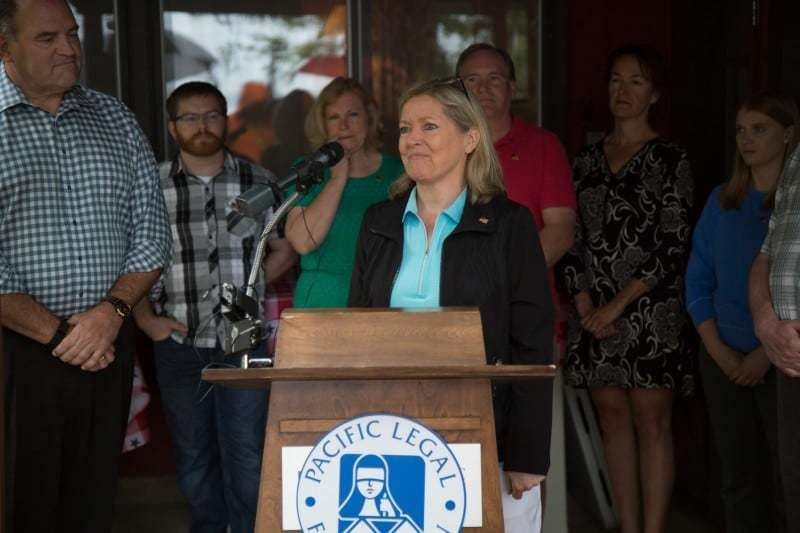The Volokh Conspiracy
Mostly law professors | Sometimes contrarian | Often libertarian | Always independent
Could a victory for property owners in Murr v. Wisconsin hurt property rights in the long run?

If property owners prevail in the case of Murr v. Wisconsin, currently before the Supreme Court, the government will no longer be able to avoid paying compensation for a taking merely because the owner of the parcel of land in question also happens to own the plot next door. To most people - myself included, that seems like a clear win for property rights. But leading land use scholar Roderick Hills disagrees:
Do the Murr's, Ilya [Somin's], and the Cato Institute's positions actually undermine the security of private property? By elevating one aspect of state property law - lot lines - over all others, their broad reading of Takings doctrine would give state and local governments enormous incentives to make subdivision of large parcels very difficult. After all, one risks a Lucas taking by allowing a farmer to split up a lot that later turns out to have wetlands or erosion-prone areas on it. The predictable reaction of state and local governments, therefore, will be to make lot splits even more difficult than they already are - perhaps forbidding them altogether. If this is the upshot of the Murrs' victory, few property owners will thank them.
As always, Rick makes a clever argument. But I don't think this issue should be more than a marginal concern. Most subdivisions are done for purpose of transferring part of the previously unified lot to a new owner. And that would increase the risk of takings liability even if the state wins Murr (which deals with situations where contiguous lots are owned by the same person or organization). To the extent that state and local governments try to make subdivision more difficult in order to avoid takings liability, they are likely to do that regardless of what happens in this case.
Perhaps Murr would lead some owners to try to subdivide lots while retaining control of both parts. But if so, state and local governments could deal with that by preventing subdivision from taking full effect until there is also separate ownership. They will have no more reason than before to block subdivisions that end up splitting ownership.
Rick is right about the broader point that many jurisdictions make it too difficult to subdivide property. This is part of the more general phenomenon of zoning and other land-use regulations that artificially increase the price of housing and other development, particularly for the poor and lower middle class. Both Rick and I are deeply concerned about this problem, as are many other experts across the political spectrum. But a victory for the Murrs will not make it worse. It might even make it slightly better . If local governments must pay compensation for a wider range of land use restrictions, they will impose fewer such constraints to begin with, at least at the margin. In some cases, that can enable the construction of additional housing.
A victory for the Murrs might also help by by generating some added momentum for strengthening protection for property rights. If property owners exercise greater control over their own land, with fewer restrictions, they will have more ability to build new housing in order to meet growing demand. In recent years, federal courts have taken some important steps towards strengthening protection for constitutional property rights.A property rights victory in Murr won't get us where we need to be, or even close to it. But it would be another step in the right direction.
NOTE: I coauthored an amicus brief supporting the property owners, on behalf of nine state governments led by the state of Nevada. As with other posts about Murr, what I write here represents solely my own views, not those of the nine state governments I helped write the amicus brief for. The brief is a pro bono project, and I have no financial interest in the case.


Hide Comments (0)
Editor's Note: We invite comments and request that they be civil and on-topic. We do not moderate or assume any responsibility for comments, which are owned by the readers who post them. Comments do not represent the views of Reason.com or Reason Foundation. We reserve the right to delete any comment for any reason at any time. Comments may only be edited within 5 minutes of posting. Report abuses.
Please to post comments
Mute this user?
Ban this user?
Un-ban this user?
Nuke this user?
Un-nuke this user?
Flag this comment?
Un-flag this comment?